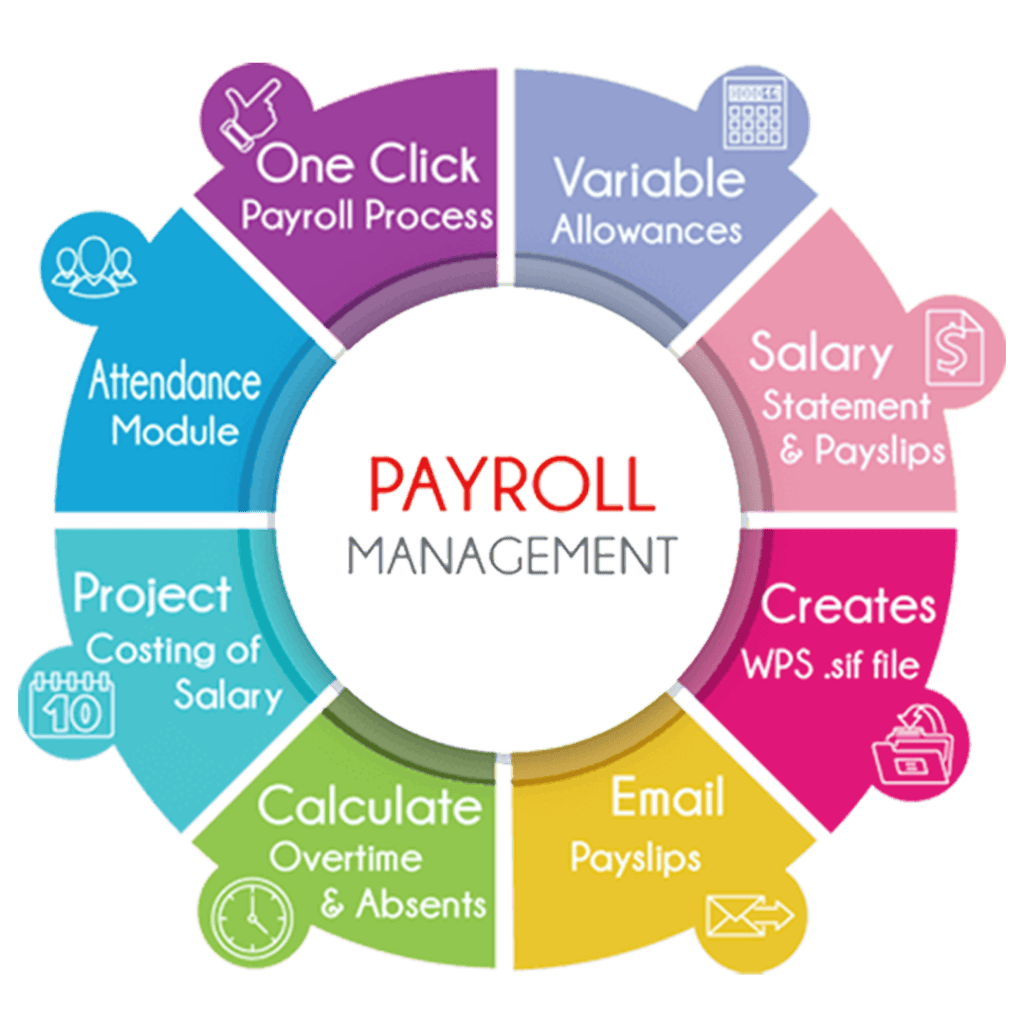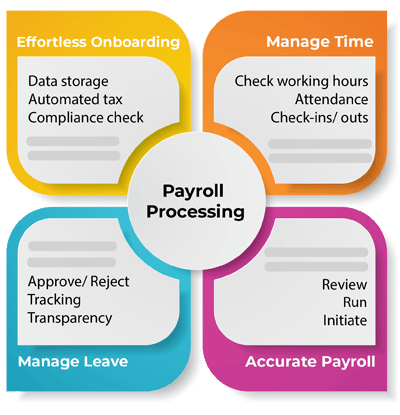
How can we help you today?
Registered Office
Infowan Technologies Pvt Ltd
Mumbai-401107. INDIA.
Contact Details
+91 98201 97205
+91 98201 26871
+91 98670 74415
support@infowan.net
info@infowan.net

If you've ever wondered what is payroll management, you're not alone. For any business—whether a startup, SME, or large enterprise—understanding what is payroll management is crucial to ensure employees are paid accurately and on time while staying compliant with government regulations.
This comprehensive guide will help you understand what is payroll management and why investing in an effective payroll system is essential for Indian businesses today.
Simply put, what is payroll management? Payroll management system refers to the entire process of handling employee compensation accurately and efficiently. This includes everything from calculating gross salary, applying statutory deductions like TDS, PF, and ESI, to distributing net pay and generating payslips.
To grasp what is payroll management, you also need to understand what is payroll system. A payroll system is a software or tool that automates the payroll process.
Using spreadsheets or paper records
Online platforms with automatic updates
Installed on company servers
Third-party providers handle payroll

Easy onboarding and scalability
Updates for Indian laws
Portals for payslips and claims
Seamless connection with attendance
Handling diverse payroll policies
Automation reduces manual workload
Precise calculations minimize mistakes
Stays updated with regulations
Timely payments boost morale
Early investment in automated payroll prevents errors and compliance issues
Require integrated systems for multi-location HR operations

Understanding what is payroll management is critical for running a successful business. Leveraging a reliable payroll system automates this complex process, reduces errors, and saves valuable time.
Q1. What is the meaning of payroll management?
The process of calculating employee salaries, deducting taxes, issuing payments, and ensuring compliance.
Q2. What are the benefits of payroll software?
Automates calculations, reduces errors, improves compliance, and saves time.
Q3. How does a payroll system work?
Collects data, calculates pay and deductions, generates payslips, and processes payments.
Q4. What software is best for Indian payroll compliance?
Cloud-based systems like InfowanHR that stay updated with Indian laws.
Q5. Can payroll systems handle multi-location businesses?
Yes, modern systems support different state-specific tax rules.
Q6. Is manual payroll management still viable?
Not recommended due to high error risk and inefficiency.
Q7. How often should payroll be processed?
Typically monthly, but can be bi-weekly or weekly.
Q8. Does payroll include employee benefits?
Yes, it manages bonuses, allowances, and statutory contributions.
Best HR Software in India | Top HR Software in India | What is an HR System? | Online HR Management Software | Best Payroll Software in India | Employee Payroll Management System | What is a Payroll System? | What is Payroll? | What is HRMS? | What is HR Management? | 7 Roles of HRM | What is Human Resources? | Top HR Interview Questions | What is HR? | HR Analytics Explained | What is HR Compliance? | Human Resource Management Guide | Best HRMS System | HR Management System Software | HR Software for Small Business | Best HRMS Employee Self Service | What are the Functions of HRM | Functions of HRM | Human Resource Accounting | Difference Between HRM and HRD | Best HRMS Software in India | Top HRMS Software in India | HRMS Companies in India | What is 3rd party payroll | Payroll Software list | What is payroll management in HR